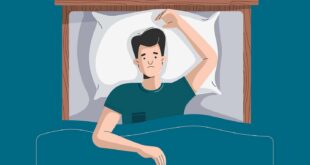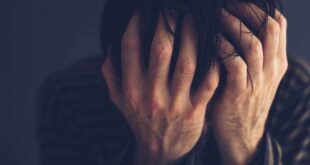Prior to any psychotherapeutic work with depressed patients it is essential that the patient have a complete and thorough medical examination because the affective state of depression can quite often be the result of some hormonal or other organic dysfunction. When one is not feeling well physically, there is a …
Read More »Depression and Repressed Hostility
What is the cause of the experience of depression itself? Essentially the experience of depression is caused by the turning of a great intensity of energy upon the ego. This energy is usually destructive in nature. In simplified terms, depression is oftentimes experienced when the energy of anger is turned …
Read More »Anxiety and Family Therapy
Systemic family therapy, the most prevalent model of family treatment today, views the individual as an integral component of a unit of organization the family. Systems theory postulates that a person cannot be viewed, nor treated, out of the context in which that person is embedded. This context, the family, …
Read More »Anxiety and the Problem of Comorbidity
Anxiety and the Problem of Comorbidity Over the last several decades clinical research on anxiety has recognized that the older term “anxiety neurosis” had limited heuristic value. Most theories and research on anxiety now recognize that there are a number of specific subtypes of anxiety that cluster under the rubric …
Read More »How is depression detected and treated?
What Is Depression? Everyone occasionally feels blue or sad, but these feelings are usually fleeting and pass within a couple of days. When a person has a depressive disorder, it interferes with daily life, normal functioning, and causes pain for both the person with the disorder and those who care …
Read More »How do children and adolescents experience depression?
How do children and adolescents experience depression? Scientists and doctors have begun to take seriously the risk of depression in children. Research has shown that childhood depression often persists, recurs and continues into adulthood, especially if it goes untreated. The presence of childhood depression also tends to be a predictor …
Read More »How do older adults experience depression?
How do older adults experience depression? Depression is not a normal part of aging, and studies show that most seniors feel satisfied with their lives, despite increased physical ailments. However, when older adults do have depression, it may be overlooked because seniors may show different, less obvious symptoms, and may …
Read More »What are the different forms of depression?
What are the different forms of depression? Depression. There are several forms of depressive disorders. The most common are major depressive disorder and dysthymic disorder. Major depressive disorder, also called major depression, is characterized by a combination of symptoms that interfere with a person’s ability to work, sleep, study, eat, …
Read More »How do women experience depression?
How do women experience depression? Depression is more common among women than among men. Biological, life cycle, hormonal and psychosocial factors unique to women may be linked to women’s higher depression rate.Researchers have shown that hormones directly affect brain chemistry that controls emotions and mood. For example, women are particularly …
Read More »What are anxiety disorders?
What are anxiety disorders? Anxiety disorders are a mix of: • Psychological symptoms: frequent or excessive worry, poor concentration, specific fears or phobias e.g. fear of dying or fear of losing control. Physical symptoms: fatigue, irritability, sleeping difficulties, general restlessness, muscle tension, upset stomach, sweating and difficulty breathing. • Behavioural …
Read More » Therapy for anxiety Therapy for anxiety
Therapy for anxiety Therapy for anxiety









